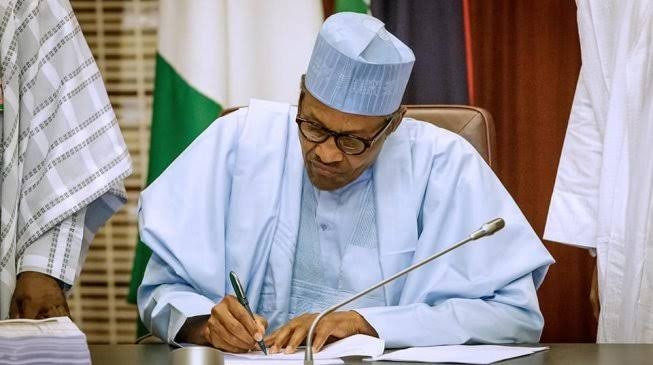MATTERS ARISING: Was Buhari right to sign executive order on state judiciary, legislature?

President Muhammadu Buhari on Friday signed an executive order granting financial autonomyto the legislature and judiciary across the 36 states of the country. This would be the tenth executive order signed since he came into office in 2015.
With this development, the legislature and judiciary are expected to be financially independent of the executive arm of the government. In other words, judges, lawmakers in the states would run their own finances without the dictate of the governors.
“Based on this order, where any state of the federation fails to release allocations meant for the state legislature and state judiciary, the accountant-general of the federation shall authorise deduction of the money from source,” the presidency had said.
The move, some have argued, would give credence to the separation of power as each of these government arms would now operate without depending on the executive.
IS IT RIGHT FOR THE PRESIDENT TO SIGN THE ORDER?
As empowered by section 5 of the 1999 constitution, the president can issue executive orders with legal effects.
Although an amendment was made with the 4th alteration act (2017) on section 121 of the constitution to allow financial independence for the legislature, some governors had failed to comply, and this was said to have prompted the executive order.
The alteration seeks to provide for the funding of the houses of assembly of states directly from the consolidated revenue fund of the state by substituting for subsection (3) of section 121 of the principal act which formerly read: “Any amount standing to the credit of the judiciary in the consolidated revenue fund of the state shall be paid directly to the heads of the courts concerned” a new subsection (3) which now reads ‘‘Any amount standing to the credit of the; House of assembly of the state and judiciary.”

According to Femi Falana, a senior advocate of Nigeria (SAN), there have been two judgments of the federal high court which directed the authorities to comply with the constitutional mandate, this time on the autonomy for the judiciary, but the judgments were ignored by all governors.
“That was what led to the campaign for the amendment of the constitution in line with what obtains at the federal level whereby the judiciary and legislature have their budgets on first line charge. The campaign succeeded with the 2017 alteration of the constitution,” he told TheCable.
“The amendment also sought to grant financial independence to the legislature in all the states of the federation. The amendment was equally treated with contempt.
“Hence, President Buhari had to make the executive order mandating the accountant-general of the federation to deduct the fund for the budget of the judiciary and pay it into the account nominated by the head of each court. The fund for the legislature will also be deducted in like manner and paid to the house through the speaker.”

Weighing in on the issue, Mike Ozekhome, another senior advocate of Nigeria (SAN), said the executive order is meant to bring stability and accountability in the system.
He argued that governors have “literally been pilfering allocations belonging” to states’ legislature and judiciary through deductions at source.
“This renders states’ legislatures and judiciaries servile and beggars to imperial state governors who use these two independent and coordinated arms of government to achieve their selfish interests thus defeating transparency, accountability and good governance,” he said.
It is not clear yet the position of the governors on the development.
But in 2019, the Nigeria Governors’ Forum (NGF) had pledged to implement the constitutional amendment earlier made on the matter.
“I totally aligned with the motion that the legislature and judiciary autonomy is a necessary precondition for an enduring democracy. This enhances efficiency, transparency and accountability in government,” Abdulaziz Yari, a former Zamfara governor and the then chairman of the forum had said. (The Cable)

